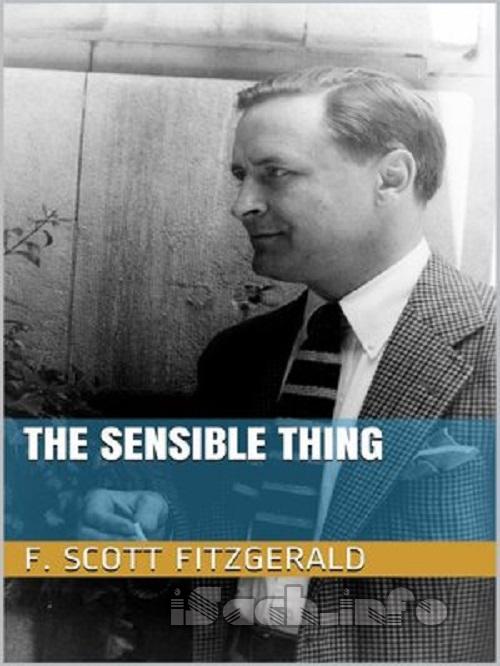Chapter 1
L
iberty, 15 July 1924At the Great American Lunch Hour young George O'Kelly straightened his desk deliberately and with an assumed air of interest. No one in the office must know that he was in a hurry, for success is a matter of atmosphere, and it is not well to advertise the fact that your mind is separated from your work by a distance of seven hundred miles.
But once out of the building he set his teeth and began to run, glancing now and then at the gay noon of early spring which filled Times Square and loitered less than twenty feet over the heads of the crowd. The crowd all looked slightly upward and took deep March breaths, and the sun dazzled their eyes so that scarcely any one saw any one else but only their own reflection on the sky.
George O'Kelly, whose mind was over seven hundred miles away, thought that all outdoors was horrible. He rushed into the subway, and for ninety-five blocks bent a frenzied glance on a car-card which showed vividly how he had only one chance in five of keeping his teeth for ten years. At 137th Street he broke off his study of commercial art, left the subway, and began to run again, a tireless, anxious run that brought him this time to his home--one room in a high, horrible apartment-house in the middle of nowhere.
There it was on the bureau, the letter--in sacred ink, on blessed paper--all over the city, people, if they listened, could hear the beating of George O'Kelly's heart. He read the commas, the blots, and the thumb-smudge on the margin--then he threw himself hopelessly upon his bed.
He was in a mess, one of those terrific messes which are ordinary incidents in the life of the poor, which follow poverty like birds of prey. The poor go under or go up or go wrong or even go on, somehow, in a way the poor have--but George O'Kelly was so new to poverty that had any one denied the uniqueness of his case he would have been astounded.
Less than two years ago he had been graduated with honors from The Massachusetts Institute of Technology and had taken a position with a firm of construction engineers in southern Tennessee. All his life he had thought in terms of tunnels and skyscrapers and great squat dams and tall, three-towered bridges, that were like dancers holding hands in a row, with heads as tall as cities and skirts of cable strand. It had seemed romantic to George O'Kelly to change the sweep of rivers and the shape of mountains so that life could flourish in the old bad lands of the world where it had never taken root before. He loved steel, and there was always steel near him in his dreams, liquid steel, steel in bars, and blocks and beams and formless plastic masses, waiting for him, as paint and canvas to his hand. Steel inexhaustible, to be made lovely and austere in his imaginative fire...
At present he was an insurance clerk at forty dollars a week with his dream slipping fast behind him. The dark little girl who had made this mess, this terrible and intolerable mess, was waiting to be sent for in a town in Tennessee.
In fifteen minutes the woman from whom he sublet his room knocked and asked him with maddening kindness if, since he was home, he would have some lunch. He shook his head, but the interruption aroused him, and getting up from the bed he wrote a telegram.
"Letter depressed me have you lost your nerve you are foolish and just upset to think of breaking off why not marry me immediately sure we can make it all right--"
He hesitated for a wild minute, and then added in a hand that could scarcely be recognized as his own: "In any case I will arrive to-morrow at six o'clock."
When he finished he ran out of the apartment and down to the telegraph office near the subway stop. He possessed in this world not quite one hundred dollars, but the letter showed that she was "nervous" and this left him no choice. He knew what "nervous" meant--that she was emotionally depressed, that the prospect of marrying into a life of poverty and struggle was putting too much strain upon her love.
George O'Kelly reached the insurance company at his usual run, the run that had become almost second nature to him, that seemed best to express the tension under which he lived. He went straight to the manager's office.
"I want to see you, Mr. Chambers," he announced breathlessly.
"Well?" Two eyes, eyes like winter windows, glared at him with ruthless impersonality.
"I want to get four days' vacation."
"Why, you had a vacation just two weeks ago!" said Mr. Chambers in surprise.
"That's true," admitted the distraught young man, "but now I've got to have another."
"Where'd you go last time? To your home?"
"No, I went to--a place in Tennessee."
"Well, where do you want to go this time?"
"Well, this time I want to go to--a place in Tennessee."
"You're consistent, anyhow," said the manager dryly. "But I didn't realize you were employed here as a travelling salesman."
"I'm not," cried George desperately, "but I've got to go."
"All right," agreed Mr. Chambers, "but you don't have to come back. So don't!"
"I won't." And to his own astonishment as well as Mr. Chambers' George's face grew pink with pleasure. He felt happy, exultant--for the first time in six months he was absolutely free. Tears of gratitude stood in his eyes, and he seized Mr. Chambers warmly by the hand.
"I want to thank you," he said with a rush of emotion. "I don't want to come back. I think I'd have gone crazy if you'd said that I could come back. Only I couldn't quit myself, you see, and I want to thank you for--for quitting for me."
He waved his hand magnanimously, shouted aloud, "You owe me three days' salary but you can keep it!" and rushed from the office. Mr. Chambers rang for his stenographer to ask if O'Kelly had seemed queer lately. He had fired many men in the course of his career, and they had taken it in many different ways, but none of them had thanked him--ever before.



 ePub
ePub A4
A4